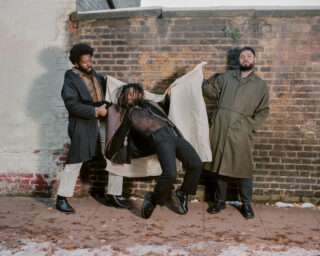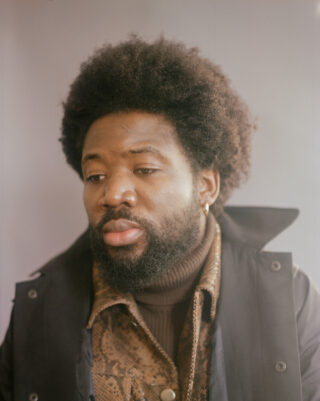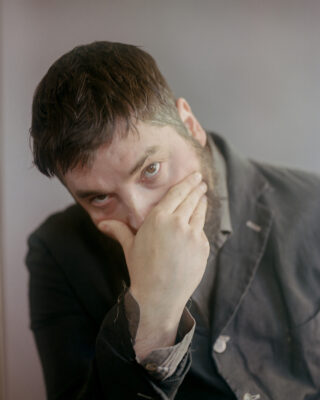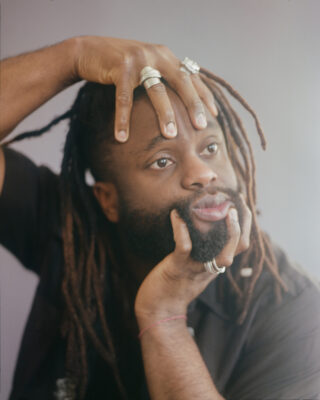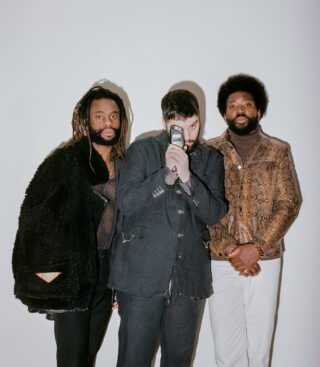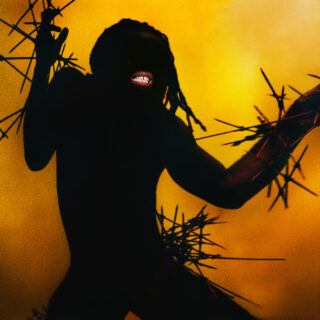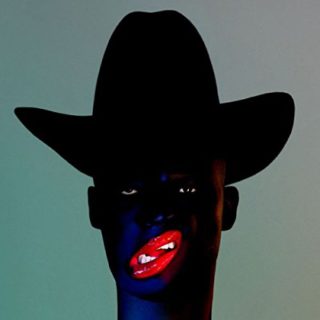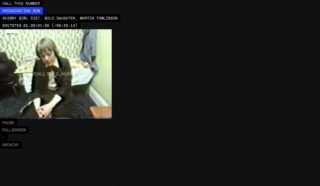Heavy Heavy is a fitting title for the new Young Fathers album. When you think of emotional heaviness, you think of being weighed down by depressive feelings. But that repetition of the word brings a playfulness to it, while adding to the weight. Like its name, the music is dense with sound and feeling, all emotions pushed to the max. At just 30 minutes, it’s a short, sharp collection of tracks that have been whittled down to deliver the most impact. Young Fathers have always worked with a heady mix of minimal and maximal. Their return explores the extremes in both directions, finding common ground in how their separate perspectives come together. “We’re three different people. We’ve forged an existence together in terms of knowing each other since we were kids,” says Alloysious. “We have different opinions, but also we do agree on the root of what we’re trying to do. That’s what brings us together, us celebrating our differences. There’s democracy in the group as well.”
The songs were recorded in batches on the fly. Sometimes it wouldn’t be until the group came back to listen that they were able to piece together what a song was about. At the centre of it is a feeling of communal catharsis and capturing the magic in the room.
“We’d have listening days where you listen back to the songs a while after you recorded it,” says Graham. “You’re never sure if the feeling is still going to be there, but ‘Shoot Me Down’ was one where that feeling was there. That formed the centre of the record. We had that as the opener for ages. We really care about the album as a cohesive thing, so we spent more time arguing about the sequencing and the order. We recorded so much stuff. Probably about three albums worth that didn’t make it, but these were the songs that worked together and had that communal feeling.”
“I told you there’s three albums here!” Kayus shouts, echoing the passion and hearty disagreement that comes with having three equal voices in the room.
“We had debates and battles about what songs should be in and what shouldn’t be, and this one worked the best for the feeling we wanted to go for,” says Alloysious. “This has been the longest experience to date. Usually when we record, that’s it and we put it out… When you’re idle, people start being pernickety. People start losing confidence and second-guessing stuff.”
“Eventually we decided to try ‘Rice’ at the start,” says Graham. It was the one that seemed to work everywhere. That’s a funny one, because when we showed friends and family, they weren’t sure it was ‘us’.”
The record is full of subtle surprises and subversions. ‘Rice’, like many other tracks on the record, is an upbeat, borderline cheery gospel-leaning song in a major key. Kayus and Graham laugh when I ask if the focus on major keys was intentional.
“We’re definitely not thinking about keys or anything like that. We play and figure out what it means after,” says Graham.
All three members lead in different ways, and reiterate that there’s little ego when it comes to who sings what part or who’s the lead writer. Alloysious jokes that “there are three Beyoncés in the group.” It’s clear that he is the band’s biggest optimist. He has complete faith that they can take over the world. It’s surprising to hear that the break gave him pause on whether he’d want to.
“For me it’s been a whole process of finding that feeling again,” he says. “I have a love-hate relationship with music. I’m passionate about creativity in general, but when the rug gets pulled from under your feet with Covid, you start looking at art as redundant. They say: ‘Hemingway wrote this masterpiece, or Picasso painted this during a time of strife’. I don’t give a fuck about any of that. What matters? It’s all the interpersonal relationships that I have. Family, friends, people that you have in your ecosystem. Those are the things that matter. That’s the experience that went into the record.”




